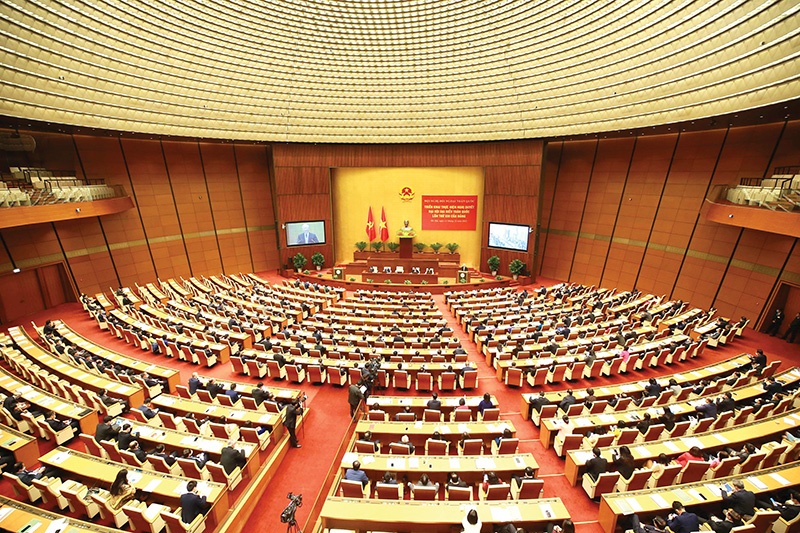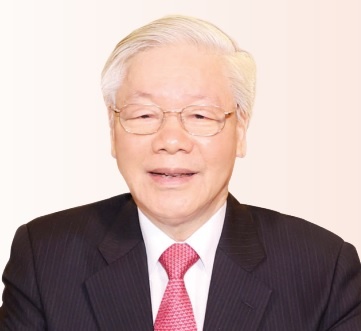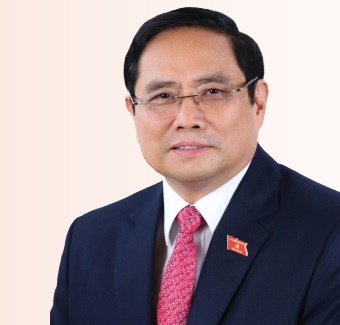Hardships overcome with diplomacy
 |
| The National Conference on Foreign Affairs highlighted the Resolution of the 13th National Party Congress, photo VNA |
The Mekong Delta province of Ben Tre last week signed an MoU on cooperation with the Vietnamese Embassy to Belgium and Luxembourg and the Delegation of the European Union to Vietnam.
The deal is aimed to increase trade and investment ties between Ben Tre and the EU in some sectors, such as high technology, renewable energy, and water treatment in service of agriculture and tourism.
The signing ceremony was one of the outcomes made on the sidelines of the National Conference on Foreign Affairs and the Diplomatic Conference in Hanoi last week, which featured the online and physical participation of thousands of delegates who discussed issues of economics, trade, investment, defence and security, culture, and society, as well as the Party and the state’s foreign policies.
According to the Ministry of Foreign Affairs (MoFA), it is expected that there will be more such MoUs to be inked, which will help localities expand their trade and investment with foreign countries under the support of the diplomatic sector.
“In the 2019-2021 period, localities signed over 200 international agreements with foreign localities, enterprises, and organisations, in a bid to expand markets for the domestic localities’ products and also help them attract more foreign direct investment (FDI),” said MoFA Deputy Minister To Anh Dung.
“Over the past two years, the diplomatic sector has weathered difficulties and made flexible adaptation to gradually implement the 13th National Party Congress’ Resolution with relatively comprehensive results.”
Prime Minister Pham Minh Chinh stated that while the path ahead remains arduous, Vietnam is fully confident. The 35-year journey of doi moi and international integration, and the country’s experiences in undergoing numerous crises in the region and the world have provided Vietnam with invaluable lessons. One of those is to transform risks into opportunities.
“The time of hardship poses two major issues for us. Firstly, how can we pursue socioeconomic recovery and development while safely adapting to and effectively containing the pandemic? Secondly, how can we find opportunities amid countless hurdles to create fresh impetus for growth, and harness prevailing trends of the time for development?” PM Chinh said.
Great strides
Over the past two years, with the concerted efforts of the entire political system and people, and the assistance from friends, partners, and the business community at home and overseas, Vietnam has managed to fundamentally overcome a period of tremendous hardships.
Vietnam has a highly open economy, with 17 free trade agreements (FTAs) spanning over 60 countries. Under these FTAs, import tariffs of almost all goods and services will be reduced and eliminated over certain periods, making it favourable for member states to boost their trade and investment within the trade blocs.
Vietnam also has a robust market of nearly 100 million people and enjoys favourable conditions, such as institutions, infrastructure, geographical location, and sociopolitical stability. In this connection, Vietnam continues to assert itself as an attractive destination that offers numerous opportunities for businesses and investors.
The government stated that Vietnam’s economy has increased 1.4 times in scale within five years, becoming the fourth-largest economy in ASEAN, ranking 37th worldwide. In infrastructure alone, Vietnam has a great demand for investment until 2030, totalling up to $30 billion per annum.
According to the Ministry of Planning and Investment (MPI), the socioeconomic situation in Vietnam has steadily recovered and witnessed encouraging progress by late November, with the pandemic fundamentally under control and the economy being reopened. From January to November 20, total registered FDI capital hit $26.46 billion, up 0.1 per cent on-year, and realised capital surpassed $17.1 billion. The 11-month export turnover reached $299.67 billion, up 17.5 per cent on-year.
The Ministry of Industry and Trade forecast that in 2021, Vietnam’s total export-import turnover will hit a record figure of $640-645 billion.
New research titled Future of Trade 2030 by Standard Chartered projected that global exports will almost double from $17.4 trillion to $29.7 trillion over the next decade.
“Vietnam is a driver of global trade growth, with its exports projected to grow at an average annual rate of more 7 per cent to cross $535 billion by 2030,” stated the report.
Additionally, the research found that 41 per cent of global corporates currently do or plan to manufacture in Vietnam within the next five to 10 years. This is evidence that Vietnam will be a major driver of global trade growth over the next decade.
“Vietnam is a growing global manufacturing hub as foreign firms continue to invest in the market, incentivised by the availability of labour, geographical proximity to global supply chains, and its foreign direct investment-friendly policies. The country also benefits from strengthening international integration through multiple FTAs, allowing it to expand its exports, move up the value chain across sectors, and create skilled jobs,” said Michele Wee, CEO of Standard Chartered Vietnam. “We are very positive about Vietnam’s future trade growth and committed to offering our support by leveraging our unrivalled international network and deep local knowledge.”
According to the MPI, as of November 20, total accumulative FDI into Vietnam hit $405.9 billion for over 34,420 valid projects from 141 nations and territories.
Vietnam has had more than 50 bilateral and multilateral donors, with total committed official development assistance (ODA) of over $90 billion for the country.
“This achievement has been contributed to by the diplomatic sector, which has actively been seeking more ODA for Vietnam,” said MPI Minister Nguyen Chi Dung.
The MoFA also reported that the diplomatic sector has contributed to helping Vietnam attract a large sum of overseas remittance, at $17.2 billion in 2020 and an expected sum of over $18 billion this year.
Journey ahead
MoFA Deputy Minister To Anh Dung said that the 13th National Party Congress has determined the position and pioneering role of foreign affairs in creating and maintaining a peaceful and stable environment and mobilising external resources for national development. The congress has pointed out a policy to develop a comprehensive and modern diplomatic sector with three key pillars including Party diplomacy, state diplomacy, and people-to-people diplomacy.
“The sector’s comprehensiveness is demonstrated in its role in directly serving localities, enterprises, and each citizen, in addition to serving political tasks at the macro level as it has been doing over the past years,” Dung said.
MoFA Minister Bui Thanh Son underlined the tasks ahead for the diplomatic sector to further contribute to national development and protection.
“We will synchronously implement tasks on maintaining a peaceful and stable environment while resolutely protecting the country’s sovereignty, unity, and territorial integrity, mobilising all external resources for socioeconomic development and enhancement of the country’s prestige. We will also continue expanding and further sharpening diplomatic ties with a focus laid on relationships with neighbouring nations, important partners, and traditional friends, while promoting the role of Vietnam at important multilateral mechanisms such as ASEAN, the United Nations, the Asia-Pacific Economic Cooperation, and the Greater Mekong Subregion.”
| Nguyen Phu Trong-Party General Secretary
Implementing the Party’s doi moi policy on foreign affairs over the past 35 years, we have reaped many fine results. Firstly, we have established and firmly strengthened our diplomatic landscape with openness, multilateralisation, and diversification. To date, we have expanded and raised our diplomatic relationship with all neighbouring nations, major countries, important partners, and traditional friends, capitalising on the large support from the international community. Vietnam has forged diplomatic ties with 189 out of 193 member countries of the UN, including special relationships with three nations, strategic partnerships with 17 nations, and comprehensive partnerships with 13 nations. Multilaterally, Vietnam is an active and responsible member of more than 70 important organisations and forums such as the UN, ASEAN, Asia-Pacific Economic Cooperation (APEC), Asia-Europe Meeting (ASEM), and the World Trade Organization. Party diplomacy, state diplomacy, and people-to-people diplomacy, and foreign affairs of sectors, localities, and enterprises have been increasingly expanded qualitatively and quantitatively. Our Party has relationships with 247 political parties in 111 nations, including about 90 communist and international worker parties. Our National Assembly has relations with legislative bodies of over 140 countries and actively participates in many important international parliamentary forums. The government’s external activities in the fields of politics, defence, security, economy, culture-society have been promoted, contributing to enhancing political trust and interweaving interests with partners. The Fatherland Front and the people’s friendship organisations have also implemented practical external relations, contributing to strengthening the friendly relations with the people of other countries, widely promoting Vietnam’s image and people to the wider world. We have created a favourable international environment and mobilised external resources to accelerate national industrialisation, modernisation, and socioeconomic development. From a country with a centrally planned economy, under blockade and embargo, our country has now become a socialist-oriented market economy with extensive economic integration; 15 free trade agreements (FTAs), including three new-generation FTAs with very high standards, and an extensive economic network with most of the important economies in the world. Around 30 years ago, we only had economic-trade relations with about 30 countries and territories, but now we have such ties with 230. Total import-export turnover has reached about $600 billion so far, about 120 times higher than in the early years of doi moi. We have attracted over $400 billion of foreign direct investment, of which about $250 billion has been disbursed. The overseas Vietnamese work has also mobilised large resources to contribute to the national construction and protection. In the context of the pandemic, we have contributed responsibly to the common international effort, and at the same time enlist international support for vaccines, medical equipment, and therapeutic drugs, making an important contribution to COVID-19 combat and socioeconomic recovery and development. Next, foreign affairs play a pioneering role in maintaining a peaceful and stable environment, making an important contribution to protecting the country’s independence, sovereignty, unity, and territorial integrity. Border issues with relevant countries have been gradually resolved, creating a legal basis and favourable conditions for protecting sovereignty, maintaining peace, friendship, and cooperation. For complicated border and territorial issues, we hold aloft the banner of peace, cooperation, active exchange, and negotiate with relevant countries to solve disagreements and seek basic and long-term solutions to settle disputes by peaceful means based on international law. Finally, the position and international prestige of our country in the region and the wider world have been increasingly enhanced, contributing to the maintenance of peace, development, cooperation, and progress in the world. We have successfully organised many major international conferences and fulfilled many important international responsibilities as a non-permanent member of the UN Security Council, the rotating chair of ASEAN, and the host of the ASEM Summit, the APEC Summit, and the World Economic Forum on ASEAN. We have also sent hundreds of officers and soldiers to join the UN peacekeeping force in Africa. In many important international issues, our country’s voices, initiatives, and ways of rationally and lovingly solving them in the spirit of equality, harmony, and humanity have received the sympathy and support of the international community. Thanks to that, Vietnam’s position and prestige have been increasingly enhanced in the international arena. Our efforts, results, and achievements have made a very important contribution to our country’s great and historically significant achievements after 35 years of doi moi. As asserted by the 13th National Party Congress, “our country has never had the opportunity, potential, position, and international prestige as today”. Those results and achievements are thanks to the sound, clear-sighted, calm, and sensible leadership of the Party Central Committee, the Politburo, and the Secretariat; the active and flexible management of the state; the consensus, solidarity, and support of the entire people; the active participation and operation of the whole political system, in which the Central Committee for External Relations, the Ministry of Foreign Affairs, the Ministry of Industry and Trade, and the agencies and units directly engage in foreign affairs in the country. *Except from remarks at the National Conference on Foreign Affairs in Hanoi, December 14. | |
| Pham Minh Chinh-Prime Minister
The country has successfully undertaken its role as chairs of the UN Security Council and ASEAN. We have also been successful in organising the 13th National Party Congress and Party congress at all levels, the elections of the National Assembly and people’s councils at all levels, and the perfection of the leading positions in state bodies. In this context, the diplomatic sector has been doing a good job in analysing the situation and conducting strategic forecasts and providing consultancy for the leaders of the Party and the state about internal and external affairs, making outstanding contributions to helping Vietnam accomplish tasks in international organisations. Diplomacy has made the world, including foreign businesses, love and trust Vietnam more. The diplomatic force has become more mature in all aspects. Especially, the diplomatic sector has made important contributions in vaccine and healthcare activities. This has helped Vietnam contribute to the shared international efforts and take advantage of international support in vaccines, medical equipment, and therapeutic drugs to fuel its fight against COVID-19. From a nation slow in access to vaccines, Vietnam now has a high rate of vaccinations, and it is now effectively shifting to a safe and flexible adaptation with good control of the pandemic while also boosting socioeconomic development in the country. This result comes from the diplomatic sector’s serious materialisation and implementation of policies and directions of the Party and state. However, the sector must make greater efforts in boosting strategic research and data building, and in beefing up economic diplomacy for sustainable development. Currently, the potential in economic cooperation has yet to be fully tapped into in some strategic areas. The number of those working in international organisations remains humble, and the life of diplomatic staff has yet to be improved significantly. Regarding the tasks ahead, it is recommended that the diplomatic sector continues making correct forecasts and analyses of the domestic and international situations. Domestically, we are continuing to implement the crucial tasks of building up the socialist democracy and the socialist law-governed state, and the socialist-oriented economy market, with a goal that by 2030 Vietnam will become a developing nation with modern industry and an upper-middle-income nation, and a developed country with a high income by 2045. The whole country must focus on carrying out goals and tasks set out by the 13th National Party Congress. We must continue fighting against COVID-19 and recovering socioeconomic development effectively, while firmly keeping political stability, protecting the independence, sovereignty, and territorial integrity; improving the mental and material life of people and making them more prosperous and happier. Over the past two months of implementing the government’s Resolution No.128/NQ-CP on safe and flexible adaptation to and effective control of the pandemic, the country’s socioeconomic situation has been flourishing. But challenges remain. In this context, in the spirit of being firm in objectives and flexible in strategies, the national benefits must be preceded based on international law and equality among nations, and serving them must be of prime importance. We must be steadfast in implementing the country’s diplomatic policy of independence, self-reliance, peace, cooperation, development, multilaterlisation, and diversification. Vietnam is a good friend, reliable partner, and responsible member of the international community. Diplomatic activities must make international friends love Vietnam more, understand and support Vietnam’s path towards socialism. Diplomacy must contribute to finalising institutions, cooperation in training human resources, attracting green technology, clean technology, green finance, as well as promoting the implementation of effective free trade agreements, improving the investment environment, linking global production and supply chains, and promoting an innovative startup ecosystem. The diplomatic sector must popularise goals, viewpoints, tasks, and solutions set forth by the 13th National Party Congress, especially after the National Cultural Conference, contributing to preserving and promoting Vietnamese cultural values and people, bringing culture to the same level as politics, economy, and society. The diplomatic sector needs to continue to promote the Resolution of the 13th National Party Congress and carry out the tasks set out at the National Foreign Affairs Conference. All diplomatic activities must be for the sake of the nation and the legitimate interests of the international community. Diplomatic activities need to show emotion, sincerity, reliability, equality, efficiency, and mutual development, as well as being resolute, steadfast, flexible, scientific, and effective. *Except from remarks at the Diplomatic Conference in Hanoi, December 15. |
What the stars mean:
★ Poor ★ ★ Promising ★★★ Good ★★★★ Very good ★★★★★ Exceptional
Related Contents
Latest News
More News
- VNPAY and NAPAS deepen cooperation on digital payments (February 11, 2026 | 18:21)
- Vietnam financial markets on the rise amid tailwinds (February 11, 2026 | 11:41)
- New tax incentives to benefit startups and SMEs (February 09, 2026 | 17:27)
- VIFC launches aviation finance hub to tap regional market growth (February 06, 2026 | 13:27)
- Vietnam records solid FDI performance in January (February 05, 2026 | 17:11)
- Manufacturing growth remains solid in early 2026 (February 02, 2026 | 15:28)
- EU and Vietnam elevate relations to a comprehensive strategic partnership (January 29, 2026 | 15:22)
- Vietnam to lead trade growth in ASEAN (January 29, 2026 | 15:08)
- Japanese business outlook in Vietnam turns more optimistic (January 28, 2026 | 09:54)
- Foreign leaders extend congratulations to Party General Secretary To Lam (January 25, 2026 | 10:01)



 Tag:
Tag:




















 Mobile Version
Mobile Version